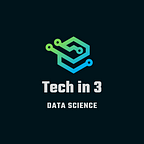Data science in medical is no more a distant dream.
Developments in the Web of Healthcare Services and AI capabilities are poised to usher in a truly digitalization in clinical trials and operations. The goal of telemedicine is to transform the paradigm patients data is acquired, managed, and used. Furthermore, AI proves to be the solution to hospital efficiency improvement, expense reduction, and preventing illness.
Precision Medicine:
Data science has the ability to dramatically revolutionize how illnesses are detected and addressed today. How? By continuing to gather and analyze patient data. This contains biological info as well as details regarding inherited illnesses, therapeutic procedures, and results.
This methodical strategy can aid in the selection of the most effective medications and treatments. This reduces the possibility of causing damage to individuals or applying ineffective therapies.
Furthermore, patient data on their behavior and ambient sensitivity might help to understand what causes particular medical ailments.
The Genomics Application Platform “provides a pathway for hospital-based genomic decoding for detecting and monitoring hereditary illnesses, as well as better care and prognosis of neonates with complicated problems.” That is unquestionably a necessity for significant advances in primary avoidance.
Remote Healthcare Monitoring:
You won’t have to stay in line for a basic consult any more, thanks to data science. Wearables and patients devices can now monitor your recuperation and link you to your medical team if you require assistance.
Furthermore, there are systems that enable healthcare practitioners to effectively track and control alterations in patient condition.
These artificial intelligence developments are increasingly being used to analyze cardiac diseases and diabetes, as they can inform both patients and medical experts if there are signs of extremely serious illnesses.
Workflow and Clinical Performance Optimization:
Recognize the Television program ER from the 1990s? Caused by a dearth of process synchronization, conflicts between surgeons and personnel would get alarmingly severe in several cases.
Furthermore, situations in healthcare institutions are fluid and even unexpected. Furthermore, there are several variables that undermine effectiveness. For example, patient requirements, collaboration among different healthcare divisions, staff personnel, and resources distribution.
Luckily, cloud-based systems and software are now available to help medical practitioners stay in control of all operations.
For illustration, Aplacare’s AI infrastructure employs AI cognitive approaches to construct a “smart health history” for each patient. Furthermore, it uses innovative procedural optimization to facilitate Value-Based Care (VBC) and locate the optimal analyzed in real when advancement is slowed. Thus, data science in healthcare promotes better judgement, which improves treatment efficacy while reducing expenses.
Prevention and Control of Healthcare-Associated Infection (HAI):
As per the European Centre for Disease Prevention and Control, 100,000 individuals in the EU alone get healthcare regarding diseases each year. Every year, these illnesses are the causative factor of thousands of fatalities.
The smart infection prevention and containment tool MONI, for example, is connected to a healthcare organization's clinical recording systems. It seamlessly integrates and converts digital healthcare and laboratories relevant data into monitoring statistics. As a result, MONI assists in identifying, monitoring, and reporting healthcare-associated pathogens with little employee involvement.
In terms of effect, data science investigation relying on such findings has the potential to save $25–32 billion in HAI reduction in the United States alone.
